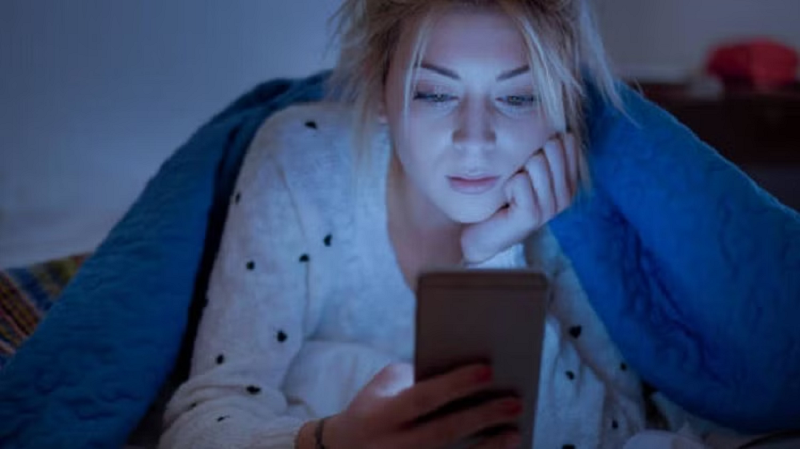
Excessive use of mobile and laptop is considered to have harmful side effects for the eyes the blue light emitted from it can not only increase the problems for the eyes but also affect the quality of sleep and the body in many other ways. found to be influential. To avoid such side effects, you must have often seen people wearing blue filter glasses.
It is believed that these glasses filter out the blue light emitted from the screen and can help reduce the side effects. But is it beneficial?
This question is arising because a recent study by a team of researchers has debunked this claim. Scientists said, even if you wear blue filter glasses while working on the screen, in reality they are not very effective in reducing the damage to the eyes.

Blue light causes many disadvantages
Researchers said that these glasses have not been found beneficial in reducing blue light damage or sleep problems. Eye problems like eye strain, dry eyes have been seen in people who are exposed to excessive blue light. Blue-filter glasses are believed to reduce these risks, but researchers in studies have not found them to be very beneficial.
What did the study find?
The study, published in the Cochrane Database of Systematic Reviews, examined data from 619 people collected from 17 clinical trials in six countries. These blue light-filtering glasses are not beneficial in preventing computer fatigue, ie eye damage caused by blue light, says senior author Laura Downey, scientist in optometry and vision at the University of Melbourne.
Researchers found that due to the high use of mobiles and laptops during the Covid-19 epidemic, many problems related to blue light have been seen more in people.
blue filter glasses are not very beneficial
It is also unclear whether these lenses affect the quality of vision or sleep problems caused by blue light, the scientists said. There is also no known potential effect of these glasses on retinal health in the long term.
Researchers report that the amount of blue light emitted from computer screens and other artificial sources is only one-thousandth of the blue light from daylight. In such a situation, there is no need for such spectacles. Furthermore, blue light lenses typically only filter out 10%–25% of blue light.










